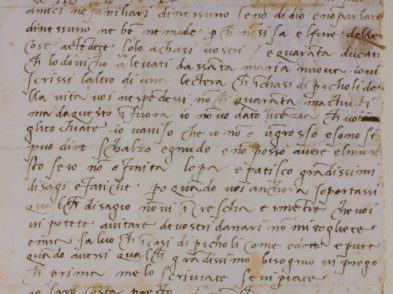Every group of amici has one: the friend that the boys call un mito and the girls think to be forte. And usually, the English words ‘mythical’ and ‘strong’ are only loosely connected to what truly makes someone great. He is the one who gets into trouble without every really being bad and who keeps the boat afloat when all signs point to ‘sink or swim.’
Smarter than the rest of us and far kinder, he can spot loneliness amidst the crowd and uncover enthusiasm in the drabbest of places.
To recount the ‘legends’ he’s generated while on holiday and at school would pack the whole page with personal clatter, so suffice it to say that quello forte in this piece is called Aldo. And though he is now pushing 40 and had his second son last month, there is still something very Peter Pan about him. Not in the syndrome sense. In the real way: he knows how to make Lost Boys feel found.
I’m sure you’ve met someone like him or at least I strongly hope you have, because every expat experience has a rocky juncture when it’s best to have uno forte to walk the road beside you. Once the honeymoon is over and the identity crisis kicks in, it hits you: There are a thousand ways of going through this world; which one is mine? That inevitable question rises for all of us like the desert sun-bright but glaring. And it was precisely around its dawning for me that Aldo decided to enlighten my mind with two long afternoons and thirty-something samples from his mountain of CDs, because, according to his theory, you’re not fit to subsist in a country until you can recognize its music.
Italian music indoctrination starts with la, mi, re, mi, the four-note combo that makes up Lucio Battisti’s Canzone del Sole. Play them on the guitar until your fingers bleed and you can consider yourself baptized. All crash music courses touch upon the following truisms: jazzy Paolo Conte rules the world on days with rain. Francesco de Gregori is first-rate for guitar westerns and sweet goodnight songs. Limit your relationship with Battiato until you’ve earned a double post-doctorate in Western civilization and Eastern philosophy; his music is appealing, the lyrics a labyrinth. Baglioni’s Roman sentimentalismo is great enough to cover the capital, Ligabue fa sempre la stessa canzone ma piace, Vasco Rossi is a giant who denies all description.
‘Most respectable Italian music is evergreen,’ Aldo explained. ‘It lasts forever.’
I nodded, ‘I’ll make sure and remember.’
‘Try to,’ he insisted. ‘It’s important to me, for you to know about music. Ci tengo.’
Would I be pushing it to suggest that those last words represent the beginning of lasting friendship? If it seems so, then now might be the right time for me to confess: I love people for the words they say. And I love Aldo precisely because ci tiene a tante cose. The Italian equivalent of ‘It’s important to me’ or ‘I care’ is a prime part of his vocabulary. And his sincerity is the true but hidden source of his ‘legendary’ status.
I never did become a music buff or learn any guitar chords besides Battisti. But here I am years later, still thinking about ci tengo. How can one not be fond of a phrase so compact and powerful? Tenere is to have, to keep or to hold. Add ci and it means ‘to hold dear.’ Two mysterious little letters change your entire outlook: you don’t possess; you care.
As a sidebar, it’s essential to say that the pronoun ci comes with a hair-raising grammatical explanation meant to make your skin as bumpy as a featherless fowl’s. And the dictionary has loads of definitions for the meticulous soul who would like to write to us and specify whether it’s an anxious demonstrative pronoun or a fussy object compliment. But for those who recognize words by pure flavor, it may be enough to know that ci is much like parsley. You don’t notice that it’s there, but when it’s missing, the zing is gone. Few can tell you what ci is really made of, but true word-chefs insist it is the secret in the sauce. Ci sono. Ci sto. Ci piace. Non farci caso. Ci passo tutte le mattine. Ci tengo.
I vote we put this last on top of the Love Pile. Some words, like some music and some people are sempre verdi. So, let the chords ring loud and clear. The truth is, ci tengo. Ci tengo. Ci tengo a te.








